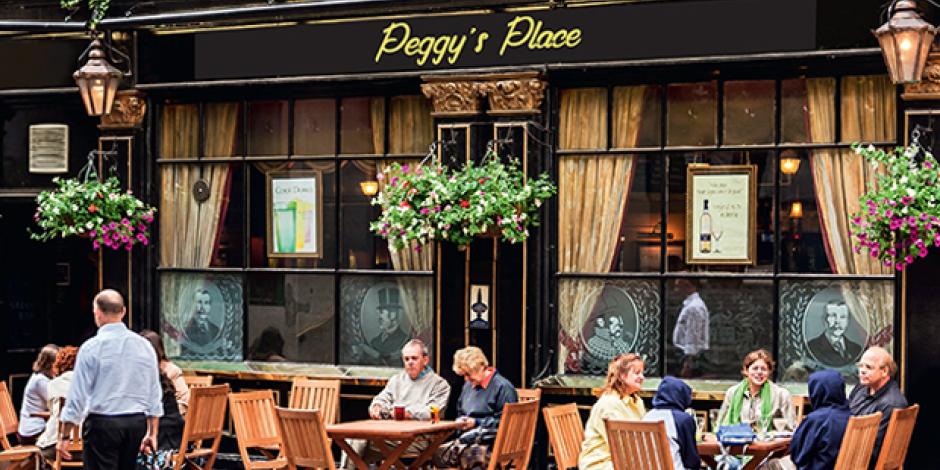George: I think the name for people like us is “sandwich carer”.
Sean: What’s that supposed to be?
Helen: Sandwich carers are people — actually, it’s usually women — who look after their kids and their elderly parents at the same time. You know, sandwichedhier: eingeklemmtsandwiched between the old and the young and giving help to both.
Sean: Isn’t your son grown up, George? Ian’s his name, right?
Helen: I thought he lived in Bristol.
George: No, he’s back home. The job in Bristol didn’t work out and we thought it’d be easier if he didn’t have rent to pay while he was looking for something new.
Helen: But Ian doesn’t need looking after exactly.
Peggy: I know what George is saying: when grown-up kids move back in, they start acting like teenagers again.
George: Yeah, only worse. They’re bigger and more opinionatedeigenwilligopinionated. Maggie certainly has more work, washing, cooking, clearing up and so on.
She’s still got all her marbles
Sean: Couldn’t Ian help look after his grandmother? I mean, if he’s got have time on one’s handsviel Zeit zur Verfügung habentime on his hands.
George: Frankly, I wouldn’t trust my son to look after a hamster.
Helen: How old’s your mother-in-lawSchwiegermuttermother-in-law?
George: She’s just turned 87.
Peggy: Does she need much help?
George: Well, she’s still got all her to still have got all one’s marbles (ifml.)geistig noch recht fit seinmarbles, but she’s very frailgebrechlichfrail and her knees are bad, so she can’t get up the stairs on her own.
Peggy: Surely, you can get someone in to help. Helen, isn’t this your line of workArbeitsgebietline of work?
Helen: Our local services are completely overstretchedüberlastetoverstretched. In the last ten years, the care budgets in England have been cut by billionMilliarde(n)billions.
Sean: But the government can’t just ignore the needs of old people.
Helen: There are government plans to to overhaulüberarbeitenoverhaul social care, but like a lot of other stuff, they got put on the put sth. on the back-burner (N. Am.)etw. auf Eis legenback-burner because of Brexit.
Peggy: I can’t imagine what things will be like when we retire.
Sean: We’ll look after you, Peggy.
Peggy: That’s very kind, but who knows what needs we’ll have?
George: I to dread sth.sich vor etw. fürchtendread getting dementia.
Helen: They’re constantly improving the care for dementia patients. I was reading about a care home in Cumbria where the night staffPersonalstaff work in their pyjamas so that the residentEinwohner(in); hier: Heimbewohner(in)residents know it’s night-time.
George: Sometimes, it’s the simple, little things that help make a to make a differenceetw. ausmachendifference.
Helen: Have you thought about putting your mother-in-law in a home? You might have to some day.
George: She’d hate that, and it’s not as if we don’t like having her around. She’s still so sparkyspritzigsparky — especially after a drink or two.
Peggy: Why don’t you bring her round here one evening?
George: You know, I think she’d love that.
Peggy: Even better: if she came round in the afternoon when things are quiet, then we’d have time to chat and Maggie would have an hour or two of peace and quiet.
Helen: Your local pub as a care centre for the elderlyälter, betagtelderly. Now, that’s an interesting concept.
Neugierig auf mehr?
Dann nutzen Sie die Möglichkeit und stellen Sie sich Ihr optimales Abo ganz nach Ihren Wünschen zusammen.



